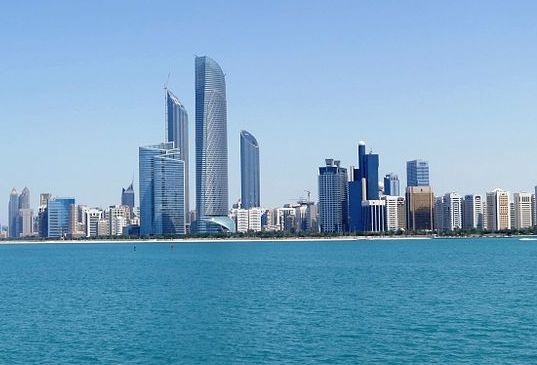Abu Dhabi Expands Water Conservation and Treatment Initiatives
Published on by Water Network Research, Official research team of The Water Network in Government
Given its arid climate and limited groundwater reserves, Abu Dhabi is in the process of ramping up efforts around both water conservation and wastewater treatment.

Abu Dhabu , Source: Wikimedia Commons, Author: FritzDaCat
The emirate is already something of a regional leader in this field, having adopted comprehensive water and electricity tariff reform, first in 2015 and again in early 2017, and a series of local government policies are continuing to make progress in this regard.
Water reuse, in particular, stands to benefit from the completion of Abu Dhabi’s Strategic Tunnel Enhancement Programme (STEP) later this year.
STEP, a large, gravity-driven wastewater network tunnel, is a cornerstone of Plan Abu Dhabi 2030 – a blueprint for accommodating the emirate’s rising population, which is expected to reach some 3m by 2030.
Demand-side management to address consumption patterns
Water security is essential to the long-term sustainability of the emirate, given rapid population growth and above-average per capita consumption rates. And while the emirate has one of the world’s largest per capita incomes, it also has relatively low annual rainfall, at 87.4 mm in 2015, according to Statistics Centre - Abu Dhabi.
With groundwater reserves being depleted some 20 times faster than the natural production rate, according to the Environment Agency - Abu Dhabi (EAD), the emirate has traditionally had to rely heavily on energy-intensive desalination for drinking water.
After years of pricing that did not adequately reflect costs, a 2015 measure removed subsidies for both government and expatriate consumers above certain thresholds, and introduced water tariffs for UAE nationals for the first time.
From a consumption standpoint, rationalisation has largely been a success. Initial studies undertaken by both Al Ain Distribution Company and Abu Dhabi Distribution Company have shown promising results. According to Sheikh Abdulla Al Hamed, chairman of the Regulation and Supervision Bureau, residential customers reduced their electricity and water consumption by 4-5% and 20-25%, respectively, in 2015.
“While non-residential electricity consumption exhibited little reduction, non-residential water consumption fell by around 7-8%,” Al Hamed told OBG. “Overall, tariff reforms reduced electricity and water consumption for all customers, by 1-2% and 14-21%, respectively.”
Further reforms came into effect on January 1, 2017, and saw bills for UAE nationals increase by between 23% and 38%, and those for expats rise by between 28% and 32%.
In addition to tariffs, the Abu Dhabi Water and Electricity Authority rolled out a new demand-side management programme, Tarsheed (or “Rationalisation”), in early 2017. Through a series of initiatives, the programme is aiming to encourage more efficient use of resources by consumers and reduce water and electricity consumption by 20% by 2030.
Read full article: Oxford Business Group
Media
Taxonomy
- Water Scarcity
- Water Access
- Water Supply
- Water Scarcity In Desert area
- Water Supply
- Water Management
- Water Resource Management
- Water Resources Management
- Integrated Water Resources Management (IWRM)